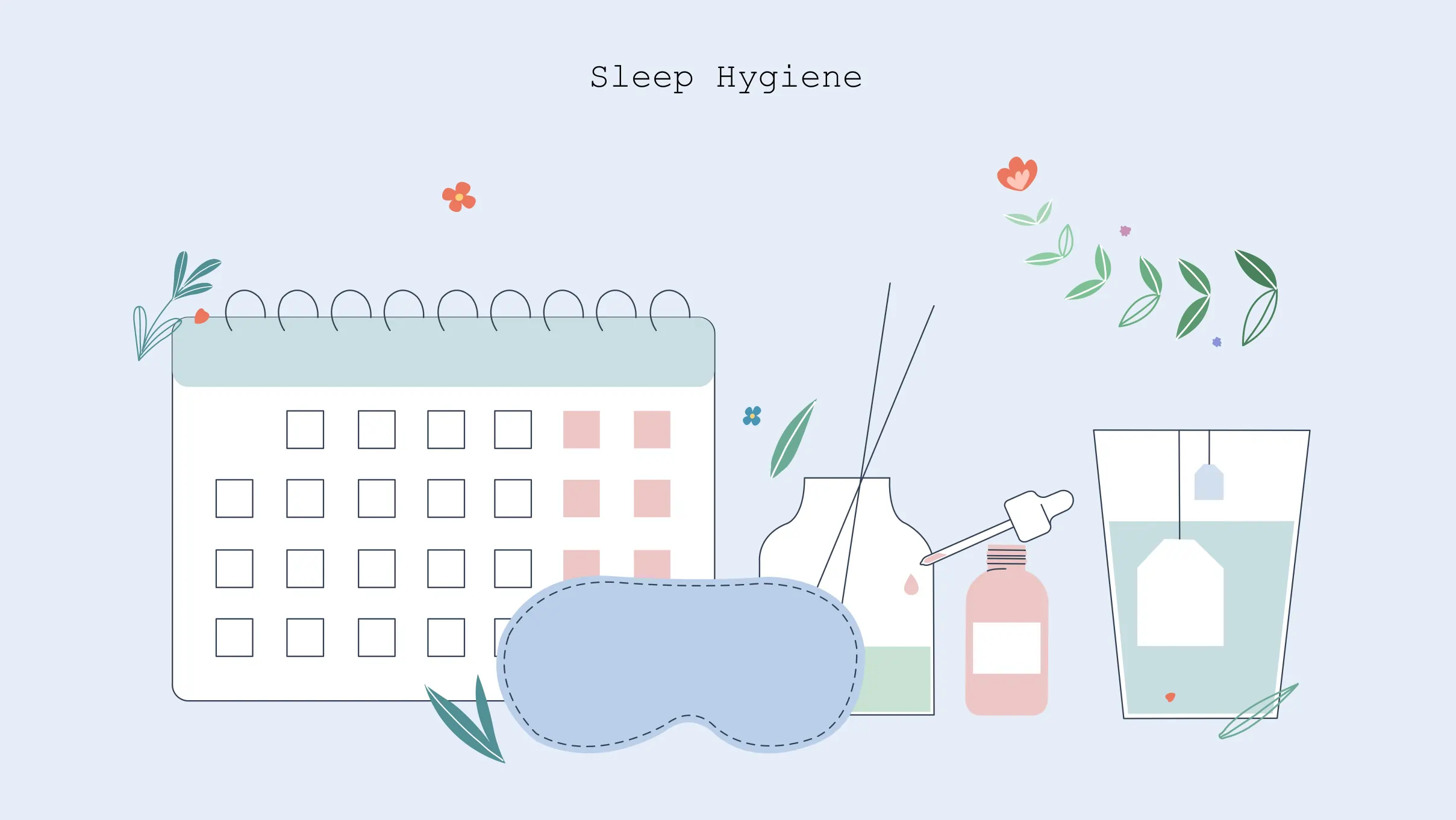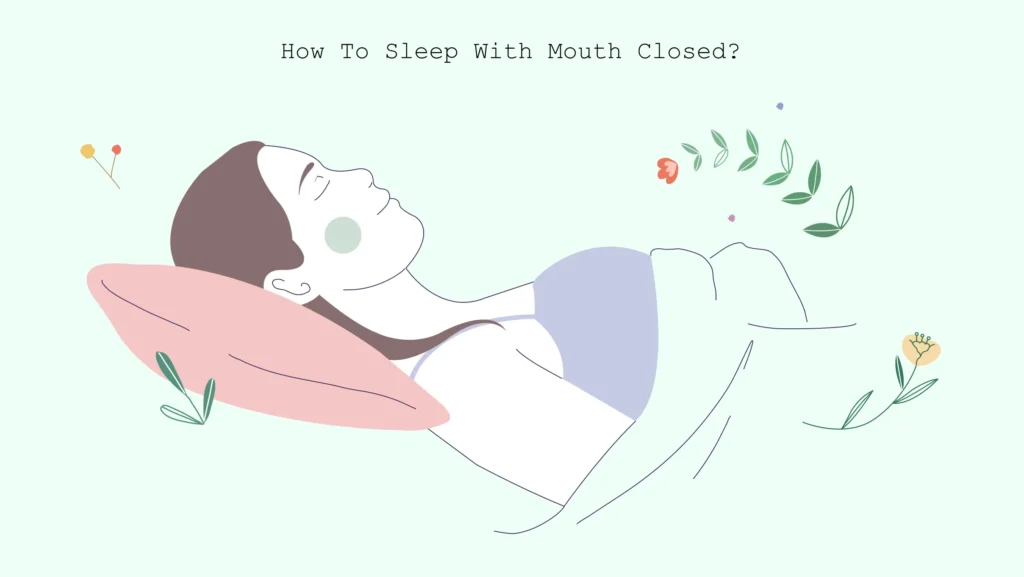10 Effective Sleep Hygiene Tips – Part 2
Written by

Medical reviewed by


Welcome to Part 2 of our comprehensive guide to sleep hygiene tips! In Effective Sleep Hygiene Tips – Part 1, we covered essential fundamentals and shared valuable insights to help you establish healthy sleep habits. In this article, we will explore additional sleep hygiene tips that can significantly enhance your sleep quality and overall well-being.
Let’s dive in and ensure you’re equipped with the knowledge and tools to achieve restful, rejuvenating sleep.
Use Your Bed Only for Sleep & Sex
Everybody, including those with sleep issues, should use the bed for which it is intended, i.e., sleep and sex. Using your bedroom, especially the bed, only for sleeping trains your mind to see the bed as a place to sleep and rest.
Ideally, your bedroom must not have any TV or other electronics. You should also avoid chatting with your spouse in bed.
Suppose, you wake up suddenly in the middle of the night and cannot go back to sleep, try going to another room and try sleeping there.
Go to Bed Only When You Are Tired
As stated, you need to train your mind that the bed is a place to sleep. Hence, you should only get into it when sleepy. If not, you will end up tossing and turning all night.
It would increase stress and make things more difficult for you.
If you have gone to bed and cannot sleep even after 20 minutes, you should get out of bed and indulge in relaxing and sleep-inducing activities like reading, listening to music, etc. You will soon feel sleepy and then go to bed.
Limit Napping- Or Avoid It If You Can
If you have a nap in the afternoon, you will naturally find it hard to fall asleep at night. You will also tend to wake up more during the night.
Hence, you should avoid it as much as possible. If you need to nap, it should not exceed 30 minutes and must be done by early afternoon. You should avoid sleeping in the late afternoon.
Manage Stress Before Going to Bed
Stress is one of the biggest enemies of good sleep quality. So, remaining de-stressed and worry-free is crucial to quality sleep. For it:
- You can write down all your stressful thoughts before retiring so that they no longer remain in your head.
- You can also write down your to-do list and other engagements that might be stress triggers for you.
- Breathing exercises for sleep, meditation, light stretches, etc., are your best tools to calm your mind before sleep.
According to research, a weighted blanket offers the same benefits as a deep pressure therapy and can tackle conditions like anxiety and insomnia.
Try Essential Oils
Essential oils are known for their calming and soothing effects. Spraying a few drops of it on your pillow, sleep bedding, etc., relaxes you and de-stresses you like no other. It could be the best panacea to sleep better.
Hot Bath Before Bedtime
Taking a hot bath before bedtime helps improve sleep quality by promoting relaxation and reducing stress. The warm water can increase blood flow, which helps you feel more calm and peaceful. Additionally, the rise in body temperature followed by a drop in temperature after getting out of the bath can signal to the body that it’s time to sleep. This can help you fall asleep faster and stay asleep longer, leading to a more restful night’s sleep.
Stop Clock-Watching
Constantly checking the time can create anxiety and stress, which can make it harder to fall asleep. This can lead to a cycle of worry and anticipation, keeping you awake longer. By avoiding clock watching and instead focusing on relaxation techniques such as deep breathing or meditation, you can train your body to associate your bed with restful sleep. This can lead to better sleep quality and a more restful night’s sleep.
Keep a Sleep Diary
Keeping a sleep diary can be a good sleep hygiene practice because it can help you identify patterns and habits that may be affecting your sleep. By tracking your sleep habits, such as bedtime, wake time, and any disturbances or awakenings throughout the night, you can gain insight into factors that may be impacting your sleep. This information can then be used to make changes to your sleep routine, such as adjusting your bedtime or avoiding certain foods or drinks before bed, to improve your sleep quality and overall health.
Use a Comfortable Mattress
To improve your sleep quality, one essential tip is to invest in a comfortable mattress. A high-quality mattress can make a significant difference in your sleep experience. Look for a mattress that provides adequate support and aligns with your preferred sleeping position. Whether you prefer a firm or soft surface, finding the right balance is crucial for promoting proper spinal alignment. Additionally, consider factors like motion isolation and temperature regulation to enhance your comfort further.
Use a comfortable pillow
If you’re looking to enhance your sleep quality, don’t overlook the importance of using a comfortable pillow. A suitable pillow can greatly contribute to a restful night’s sleep. Choose a pillow that aligns with your sleeping position and provides proper support for your head and neck. Back sleepers may benefit from a medium-firm pillow, while side sleepers might prefer a thicker pillow to maintain spinal alignment. Stomach sleepers can opt for a softer and flatter pillow to avoid strain on the neck. Additionally, consider factors such as material, loft, and breathability to find the perfect pillow for your needs.
Conclusion
The importance of good sleep cannot be overstated. Sleep hygiene can be your ultimate weapon to tackle sleep disorders, from mild to severe. By following the sleep hygiene tips, you are sure to reap the benefits of quality and restful sleep.
FAQs
What are the signs of poor sleep hygiene?
A few of the known and tell-tale signs of poor sleep hygiene are:
- Tossing and turning in bed.
- Takes a long time to fall asleep in bed.
- Frequent wake-ups during the night.
- Feeling fatigued, foggy, and drained of energy throughout the day.
- Slowed down reflexes and difficulty in making decisions or executing creative works.
- Feeling more anxious, stressed, and depressed.
If you are facing any of the symptoms, it’s time to become alert and focus on improving your sleep hygiene for better sleep.
What is unhealthy sleeping?
It constitutes all those habits that prevent you from having a restful sleep. It indicates a lack of proper sleep hygiene and results in disturbed sleep, frequent wake-ups, etc., which leaves you tired, energy-less, and irritable in the morning.
people like this article
Written by

Medical reviewed by








